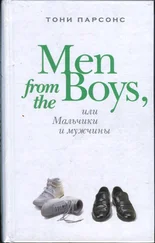She gave a polite half-smile. If she stood up, Miqui had won the game. Maybe she wouldn’t get up. The weird guy next to her was waiting. Miqui imagined her in Cindy’s place, on the cruiser. He imagined her sailing with him. In a bikini. That white skin getting toasted. Tan, hot. But no. Don’t even think it. It wouldn’t work with her. She was older than Cindy. And he had seen her house, surrounded by fields, with animals and tractors, with dogs and horses. Those people were loaded. If they didn’t have a mooring in Port d’Aro it was because they didn’t want one. A cruiser? Why are you even telling me this? We have a yacht. We sail to Majorca. Once we went to the Baltics. Her father had called Miqui sir . Not everyone was a sand jockey like Ahmed or a whore like Goldilocks or a spic like Cindy. There were still normal people around. There were young people with futures. That’s where her white coloring came from, from the fat in a healthy diet. She should be feeling sorry for him, a fucking trucker.
Maybe she did. For two seconds she kept her eyes lowered, until she made up her mind. She got up from her chair. A kiss on each cheek and her name.
“Iona.” And Miqui finished it in his head: Iona Sureda. Checkmate. Her father had signed the receipt.
“If you ever need a truck. .” He handed them each a business card and went back to the bar.
Cindy hadn’t missed the scene. She gave him his change for the beers with a furious expression. Miqui sat down with his back to the bar, staring at Iona. He could look her up and down with no problem: they were busy with the cell phone.
There was a large blue anchor painted on the entrance to the warehouse in Palamós. Outside, behind a wall, there was a ship graveyard. You could see it perfectly from the truck, injured boats, faded and dirty from being left out in the elements, with flaking paint, dented metal, broken glass, and amputated pieces that had been used as replacement parts for newer boats. A raspberry patch had slowly invaded one area of the cemetery, the brambles growing and taking over some of the ships, hugging them, tangling around and covering them like a slow green wave, a thorny wave that a bow, a submerged berth, or a bit of railing occasionally peeked through. Here a propeller blade emerged, over there floated a piece of rudder or a faded orange life vest — like a pot filled with weeds. A bit of chain sparkled between some boats, a hull, busted by some underwater slab, revealed a yacht’s abdomen, stuffed with green viscera. To one side, a dozen boat trailers were piled up, their iron rusty and their wheels flat.
He drove the truck into the storehouse. They signaled for him to put it beneath a bridge crane. They unloaded the cruiser, placed it on a forklift, and stored it in a niche of the large metal shelving unit among other boats. Light traveled down to the warehouse floor from some big blue windows near the ceiling. The sun’s rays reached the ground, falling on the sunken fleet, intact shipwrecks in the belly of the Palamós storehouse, gathered from sport marinas all up and down the Costa Brava: yachts, outboard boats, pleasure cruisers, sailboats, and catamarans resting on the shelves like a collection of defeated trophies. The sailboats had no masts, and they’d taken the motors out of the ships, lining them up against a wall. There were boats like his, motorboats in all sizes, shapes, and colors. You could look up at the higher ones, they had names like Grace, Sirenamar, Lola, and Xaloc. If he had any savings, he probably could have bought one cheap, their original owners must already have boats twice as long on the other side of the planet.
Returning to Sils, he left the road and drove the truck into a forest at the foot of the Gavarres mountains to dump the tires. The sharp north wind was stripping the trees of their leaves. It had rained recently, but he wasn’t worried about the puddles on the road, the Atego’s weight allowed him to go anywhere. The low branches of the holm oaks and pine trees grazed the top of the cab, and the forest gradually swallowed it up, as if it were a submarine. He followed the dirt road until he reached a clearing where it would be easy to maneuver the truck around.
He turned off the engine and remained in the cab, watching how the north wind moved the branches, making them seem somewhat hysterical. The birds came to rest in the trees. He lowered the window. He pulled down the shotgun, rested its barrel on the glass, and took aim at a sparrow perched in a pine. There was one cartridge left in the chamber. The sparrow flew off. He followed it with the barrel. He had to practice a lot if he wanted to be a good shot. What would have happened if he’d killed that little whore? Nothing. The pimp in the van wouldn’t have wanted any problems. He would have just left it at that. Miqui would have gone straight to Palamós to drop off the boat. He would be right where he was. But he wouldn’t know the name of the widow.
“Has anyone ever told you that you’re crazy?”
But being crazy means that you don’t know it. How could you be crazy and know it? True lunatics live on a cloud. Maybe he was cold and analytical sometimes. Maybe he was a little antisocial, like Isma said, a little bit of a psychopath. But he couldn’t know that either. No one could know that.
He shot a tree trunk. Splinters flew. Some hit his face. Too close.
He got out of the cab and climbed onto the truck bed. He started kicking the tires out. When he’d emptied the bed, he went back to the cab. Opening up the glove compartment, he grabbed a half-dozen shells and reloaded the shotgun. He made columns out of the tires by placing one on top of the other. He raised four black columns the size of a person. He tried to knock them down with one shot. That was the start of his shooting practice.
He locked up the truck in the lumber warehouse, leaving the shotgun inside. His apartment was the same as ever, his father shut in his room and the hypocritical voices of the television escaping from beneath the door. He hadn’t had any lunch, and he defrosted a baguette, filled it with what he could find, and went to his room to eat. He was tired from the night before. He stretched out on the bed and fell asleep.
He woke up in the middle of the night, got up without switching on the light, sat at his desk, and turned on the computer. The room looked like the moon. The chats, the conversations, continued as always. They would continue until the end of the world. He was there for a while, following the chatter of stupid jokes and demands for attention. One day he would invent a program that gave all those messages meaning, came up with their statistical average, interpreted them. Who were all those people? Who was typing? Robots? It was endless. Like the wind always going up and down the staircases of the empty buildings in Platja d’Aro, like the cylinder of air inside the piles of tires he’d made in the forest, in which a person could stand. Miqui occasionally pulled back the curtains to let light in. But even when he pulled back the curtains, the chat continued. There was always someone on duty. People who never slept. When Miqui dies, the chat will continue. Because there is still another curtain, and behind that other curtain there is someone else, a glowing body sitting alone in front of a keyboard, in a room, in an apartment way up high in one of those empty buildings in the morning, glowing like the screen, and giving off light, a scant light that can’t be seen during the day, but you might notice among the audience at the movies or in a theater, or at night if you found it far from the streetlights, walking past you in a dark alley, or in a cave, or in a forest, or if it sat among the passengers on a plane flying at night that had turned off its lights for a moment as it went through some turbulence, when everything was dark in the middle of the night and through the windows you only saw the intermittent beat of the navigation lights on the wings, and beneath the plane the large cushion of clouds illuminated by the moon and, inside the plane, among the passengers lurching as if they were traveling by horse and buggy, that body — neither man nor woman — with its faintly glowing aura, over the laptop, typing. When a train went through a tunnel and for whatever reason the lights didn’t work, then you could make it out, always typing, with the screen lit up like a rectangular extension of its skin, a skin through which its inner light passed — the light didn’t come from its skeleton or from some phosphorescent blood in its veins, you couldn’t see it in an X-ray or in the illumined tree of a circulatory system, it was more like light that swaddled its skin, muscles, veins, and bones, entering and exiting the skin, a light that was both inside and outside that body that typed behind the second curtain, in some apartment in an empty building, and who wasn’t human but wasn’t a robot either — much less any sort of divine presence or supernatural being — but just an extraterrestrial. And sometimes he saw its silhouette, sometimes it got so close to the curtain that its light came through it, and other times he heard it typing, which was what kept it lit up, so that the humans would receive messages, so that the humans had someone to keep them company, so that they could have a consciousness.
Читать дальше












